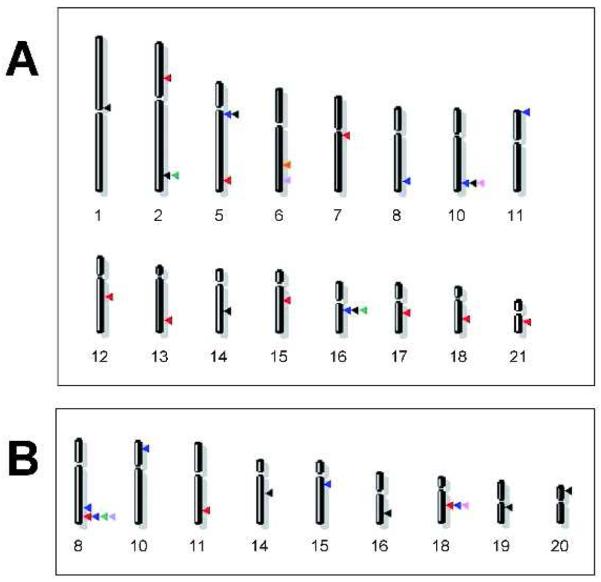Figure 2.
Proposed role of genetic heterogeneity in individual predisposition to cancer. Colorectal cancer is given as an example. Several causative mutations at single genes (monogenic syndromes, in green), as well as variations at several loci (polygenic control) detected by either pedigree analysis (in yellow) or GWAS (in red), increase the risk of cancer. Only the 11q23.1 locus was common to pedigree and GWA studies. Either the single genetic defects or the polygenic conditions produce a cancer-prone condition in the normal tissue; individual risk of cancer might be further modulated by environmental factors, leading to somatic mutations and, ultimately, to cancer.

